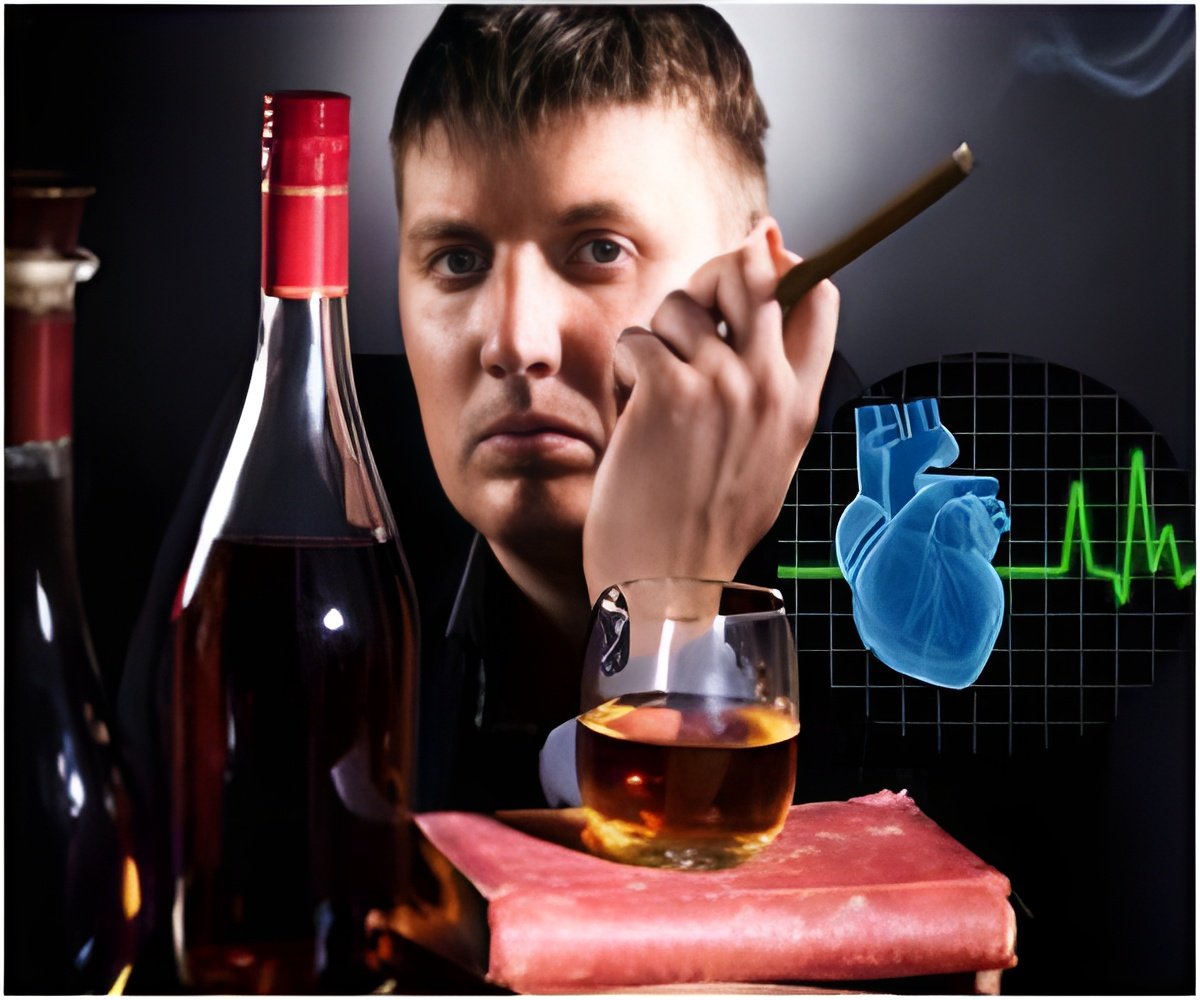
‘Drinking alcohol in moderation in the absence of other significant health problems is considered acceptable. But otherwise, it is better to avoid alcohol to prevent risks like atrial fibrillation and associated stroke.’
Tweet it Now
Results of a new observational study show that middle-aged and older adults who drink as little as one drink per day on average are left with a risk of developing a type of irregular heartbeat called atrial fibrillation (A-fib), which can lead to other problems, including stroke.Each additional 10 grams of alcohol consumed per day was associated with an estimated increase in left atrial dimension of 0.16 mm and a 5% risk of atrial fibrillation, lead author David McManus, MD, director of the Atrial Fibrillation Treatment Program at UMass Memorial Health Care in Massachusetts. and colleagues report in a study published online in the Journal of the American Heart Association.
"Despite the widely held belief by the public that alcohol has a beneficial effect on general heart health, acute alcohol consumption has long been linked to the development of [atrial fibrillation]", said Dr. David McManus.
Senior author Gregory Marcus, MD (University of California, San Francisco), said the fact that those relationships were seen even at consumption levels of only roughly one drink per day was a little bit surprising and suggests “the even the amounts of alcohol that are considered acceptable by the American Heart Association (AHA), for example, could be harmful to those prone to atrial fibrillation.”
The AHA recommends that for those who choose to drink alcohol, it should be done in moderation, defined as one to two drinks per day for men and one drink for women.
Advertisement
A relationship between alcohol consumption and A-fib has been observed in multiple studies, but the main unknown has been the mechanism. Heavy alcohol use has been shown to impair ventricular function, and it is possible that the atria—which seem to be more prone to damage than the ventricles—could be enlarged with even small-to-moderate amounts of alcohol.
Advertisement
At the beginning of the study, the average age of participants was 56 years and their mean left atrial dimension was 38.3. mm. Average alcohol consumption was 13.3 grams per day. Through a median follow-up of 6 years, the incidence of A-fib was 8.4 per 1,000 person-years.
Over the study period, the researchers found that every additional 10 grams of alcohol (just less than one drink) consumed daily was linked to a 0.16-millimeter (0.006 inches) increase in the diameter of the left atrium.
Although incrementally greater amounts of alcohol consumption were associated with larger left atrial sizes, there was no relationship between intake and the change in left atrial dimension over time.
After adjustment for left atrial dimension, the link between alcohol intake and A-fib became nonsignificant. The authors estimated that 24% of the association could be explained between alcohol and left atrial enlargement.
“These data, although observational, are consistent with the notion that chronic alcohol consumption, even at moderate levels, can be cardiotoxic and lead to pathological atrial structural change that can, in turn, enhance vulnerability to [A-fib] later in life,” the authors write.
Further research is needed to identify genetic or environmental exposures that can identify at-risk patients.
“If you’re completely healthy in every other way, have no hypertension, exercise, your cholesterol’s perfect, and you don’t smoke, is it alright to have moderate use of alcohol? Probably,” said Mariell Jessup, MD (Hospital of the University of Pennsylvania, Philadelphia), stressing that nobody should be drinking excess. “But if you’re drinking more than moderately every day and you have other risk factors including hypertension or older age, I think alcohol may contribute to the development of atrial fibrillation. And the reason, of course, that that’s so important is that atrial fibrillation leads to stroke.”
Source-Medindia















